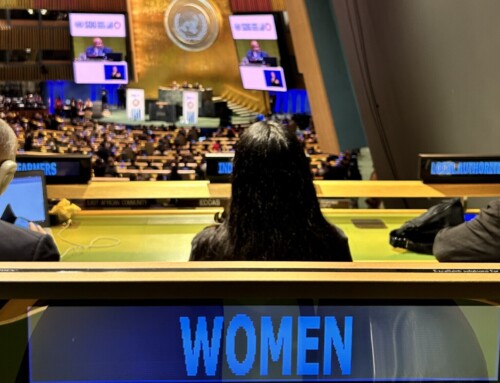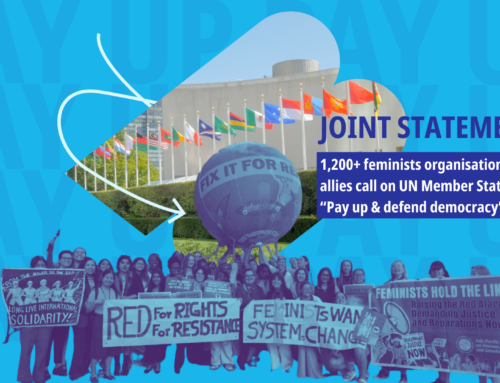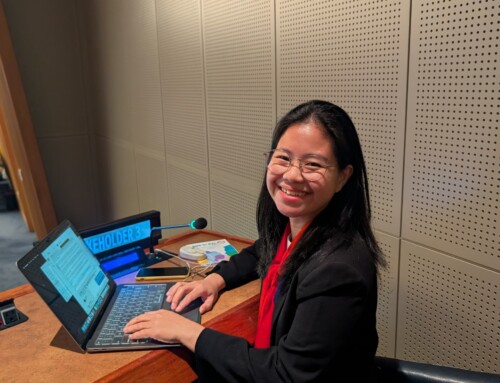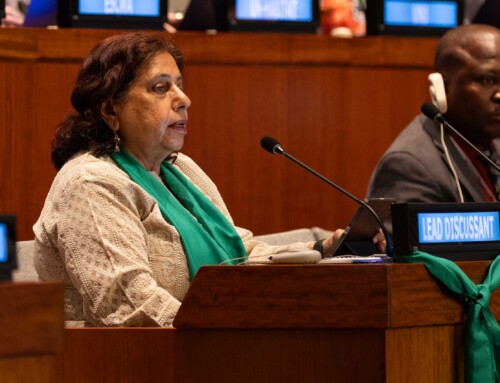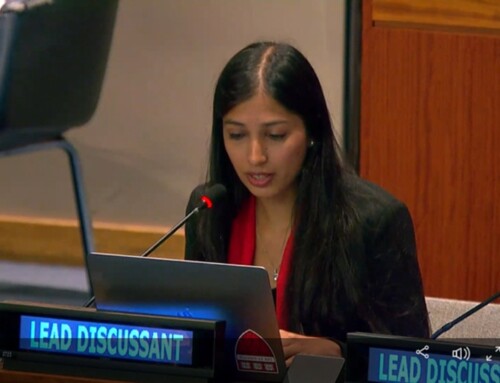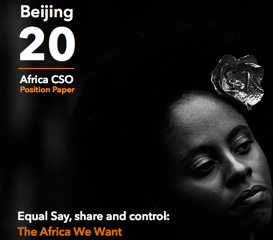
African women have been at the forefront of shaping the global agenda for women’s rights from the 3rd World Conference on Women in Nairobi in 1985 that resulted in the “Nairobi Forward-Looking Strategies”. The 4th World Conference on Women held in Beijing in 1995 was chaired by a prominent African woman, Mrs. Gertrude Mongella, who alongside other African women ensured that the Beijing Declaration and Platform for Action’s (BDPfA) 12 critical areas of concern reflected priorities of African women and girls.
Over the last two decades, Africa has made tremendous strides in developing progressive frameworks to advance the rights of women on the Continent. This is evident from the adoption of the gender equality principle in the African Union’s (AU) Constitutive Act of 2002, the AU Protocol to the African Charter on Human and Peoples’ Rights on the Rights of Women in Africa of 2003, and the Solemn Declaration on Gender Equality in Africa of 2004, to mention a few. At national and regional levels, significant progress has been made in such critical areas as: girls’ education, women’s political participation, maternal health, adoption of action plans on UN Security Council Resolution 1325, as well as laws and policies on violence against women, amongst others.
Nevertheless, the 20 year review of the BDPfA comes within a social, political and economic environment in which many of the gains made in 1995 are facing various threats. The following trends and challenges continue to hinder the advancement of women and girls’ rights including, but not limited to: widening inequalities between the rich and poor and between men and women due to prioritization of macroeconomic policies that are driven by growth, without equitable development and respect for human rights; HIV, maternal mortality and morbidity continue to be amongst the leading causes of death for women; increasing radical and extremist groups that pose threats to the safety, security and advancement of women and girls, as indicated by on-going abductions of girls; and the shrinking space and resources for civil society particularly those working on women’s rights.
It is therefore incumbent upon us, as Africans, to re-dedicate ourselves to the commitments made in the BDPfA and other international and regional commitments on rights of women, recognizing women in all their diversities. This includes ensuring on-going processes and negotiations on Post 2015, the Sustainable Development Goals (SDGs), Financing for Development (FfD), the 2015 United Nations Climate Change Conference (COP21), and the Africa Agenda 2063 do not erode these commitments and that they consolidate the gains made. Reaffirming as well that the State remains the principal duty bearer of human rights obligations and this responsibility should not be shifted to other actors such as civil society, development partners or the private sector.
We, 190 representatives of civil society in our diversity from 34 countries in the 5 regions of Africa and the Diaspora, gathered in Addis Ababa, Ethiopia from November, 14 -16 2014 for the NGO Forum on the Beijing+20 Review, and building on the UNECA CSO Technical Consultation on Beijing+20 convened in October 2014, hereby recommend the following to African governments, recognizing that each organ and department of government is responsible and accountable for women’s rights falling within its mandate, under coordination by the gender machinery.
Download here.

